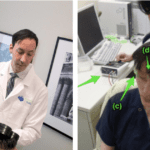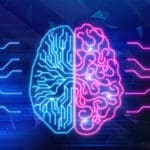Patients often feel trapped when their depression doesn’t respond to traditional methods of treatment such as pharmacology and therapy. Depression is a treatable disease. Traditional methods are not your only option. Nonsurgical brain stimulation methods are continually gaining attention as effective strategies for treating depression. As the field’s recognition broadens, new methodologies have emerged. rTMS (repetitive Transcranial Magnetic Stimulation) is an established and trusted form of nonsurgical brain stimulation; tDCS (Transcranial Direct Current Stimulation) is another brain stimulation method. Mid City TMS wants to help our patients understand the difference between rTMS and tDCS by explaining how the treatments are conducted, their safety, and their effectiveness. The term “TMS” is often used interchangeably
At Mid City TMS, we have the privilege of providing a treatment that truly cures depression. TMS is a relatively new treatment option for those with depression and anxiety and many people wonder, “Does TMS therapy for depression and anxiety actually work?” As pioneers of transcranial magnetic stimulation, the providers at Mid City TMS have seen firsthand how these simple therapy sessions can completely transform patients’ mental and emotional states. Mid City TMS stays abreast of all medical advancements in the TMS community, tracking emerging data to provide the best care and most treatment options for our patients. There is a growing body of knowledge demonstrating the effectiveness of TMS therapy for depression and anxiety.
Depression and Anxiety Disorders
Depression comorbid with an anxiety disorder is common. When a person experiences two or more illnesses at the same time, those illnesses are considered “comorbid.” Studies have shown that 40 to 70% of people with depression simultaneously have at least one type of comorbid anxiety disorder (i.e. Generalized Anxiety Disorder, Panic Disorder, Social Phobia, Post Traumatic Stress Disorder). According to a study published in The Official Journal of the Association of Medicine and Psychiatry, 10% to 20% of adults will visit their primary care physician during an anxiety or depressive disorder episode in a given year, and 50% of these patients suffer from another comorbid depressive or anxiety disorder.
Multiple studies have demonstrated that patients who suffer from depression and a comorbid anxiety disorder are prone to higher chronicity, an increased severity of illness, impaired work functioning, and reduced psychosocial functioning. These factors result in a lowered quality of life for those with depression and anxiety comorbidity as compared to those with only one of these conditions.
Promising Studies for using TMS Therapy for Depression and Anxiety
At Mid City TMS, we are encouraged by research and our own experience indicating that using TMS for depression and anxiety is an effective solution.
Recent Study Revealed TMS’ Effectiveness in Treating Depression and Comorbid Anxiety Disorders
Although patients with comorbid anxiety and depression typically receive fewer benefits from traditional treatment methods such as medication or psychotherapy, our experience and research demonstrate that these patients often receive significant benefit from TMS.
A study published in June of this year tested TMS’ ability to provide relief to patients with comorbid depression and anxiety disorders. The researchers evaluated TMS treatment of 248 patients with treatment-resistant MDD; 172 of these patients had at least one comorbid anxiety disorder. Comparing the non-comorbid and comorbid patients’ results revealed equally positive depression remission and response rates with 23.3% of patients achieving remission (almost complete resolution of their depression) and 39.5% of patients achieving a response (at least 50% improvement in the severity of their symptoms of depression) at the conclusion of a course of TMS. In addition, there was a significant reduction in the severity of anxiety symptoms in those patients with comorbid anxiety disorders. The researchers measured the patients’ results using tested methods such as the Hamilton Anxiety Rating Scale.
TMS Provides Substantial Relief for Symptoms of Anxious Depression
A large subset of patients with depression are described as having “anxious depression.” These patients with depression have prominent anxiety symptoms as part of their mood disorder–such as feeling tense, restless, difficulty concentrating, excessive worry, reduced appetite, and physical symptoms such as palpitations, diarrhea, headaches, and indigestion—but don’t necessarily meet full criteria for a comorbid anxiety disorder. In general, patients with anxious depression (vs. non-anxious depression) have an earlier age of onset, experience more and longer depressive episodes, are more severely depressed, have an increased risk of suicidal ideation and behavior, have greater functional impairment, and have poorer response from traditional treatments such as medications.
A study published in the US National Library of Medicine measured the effectiveness of TMS therapy for 32 adult outpatients who had been referred for TMS therapy for their treatment resistant major depression. Their response to TMS was measured using The Hamilton Rating Scale for Depression (HAMD). A quarter of these patients had anxious depression, defined when an individual scored seven or above on the anxiety/somatization factor of the HAMD. Both depression and anxiety symptoms improved from pre- to post-treatment with moderate to large treatment effects. Patients with and without anxious depression demonstrated similar rates of improvement in depression. Although this study is limited by its small sample size, it was encouraging that anxious depression was not associated with an attenuated treatment response to TMS which is consistent with our experience with patients we have treated at Mid City TMS with anxious depression.
The Future of TMS Therapy For Anxiety
TMS experts are working to determine the optimal treatment parameters and predictors of patient treatment response when using TMS to treat depression and anxiety. Mid City TMS is excited by the developing body of research for treating depression and anxiety with TMS therapy.
Get Relief From Comorbid Depression and Anxiety
Mid City TMS seeks the advancement of research for the future of TMS, while employing tested and proven TMS methods to provide relief for depression and comorbid anxiety disorders and anxious depression. Mid City TMS is proud to be at the forefront of TMS innovation. Our medical director was one of the first providers of TMS treatment in the New York City region. Contact us today to relieve the debilitating effects of comorbid depression and anxiety.



